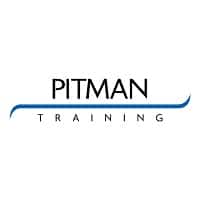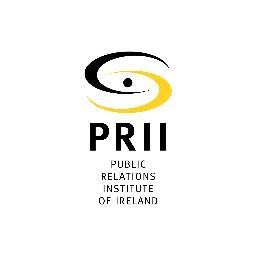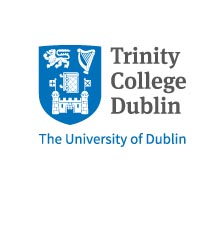Course Description
Communications (QQI Level 6)
The Open College
Learners who successfully complete this course will:
- heighten an awareness of the essential role played by communication in human interaction
- understand the communicative principles and practices involved in gathering and relaying information
- analyse the nature and theory of communication
- explore varieties of non-verbal communication
- acquire the skills and confidence required to encode and decode meaning, in writing, verbally and visually
- enhance and refine interactive skills and qualities.
Who should complete this course?
- Learners who want an opportunity to reflect on the nature of human communication and on their own individual competence as communicators.
- Learners who may already be practised and experienced communicators to wish to explore ways of developing and refining existing skills to their full potential in both professional and private life.
Topics Covered Include:
- Unit 1: This first unit looks at some of the modern communication difficulties, and advantages, brought about by the introduction of technology into the communications process. It starts by looking at the History of communications and how it has developed over time in its many revolutions, including the latest the technological communications revelation.
- Unit 2: Looks at Irish and European Legislation surrounding communications.
Within this second unit, you will look broadly at legislation that effects communications, governing technology, your working environment and as it pertains to health and safety legislation. In addition to the legislation outlined, there is one additional support body ” NERA National Employment Rights Authority ” which also plays a key role in understanding core components of legislations that you will use in your day to day work as a supervisor or manager.
- Unit 3: Non-verbal communication plays such a significant role in our lives today, that it has been studied by many people in many fields. Figures may vary but on average up to 75% of what we actually communicate is non-verbal. Nonverbal communications competence requires us to be able to encode and decode nonverbal messages.
- Unit 4: We look at the many ways to enhance the message you are trying to send through the use of imagery, or how to completely replace a message with one image that tells a story. Visual images in the work place when applied for example in Health and Safety, can be very effective at illustrating the meaning or seriousness of the message being communicated.
- Unit 5: We will look at how we utilise listening skills in a variety of roles and contexts, to include note-taking, receiving messages, taking minutes, reporting, summarising, paraphrasing. All of the above tasks require that at first you listen, and then understand what has been communicated to you. We will look further at the difference between listening and hearing with the former being active and hard work and the latter being an unconscious passive process that leads to reactions based on our internal programming.
- Unit 6: Dynamic communications, within many environments we rely completely on communications to achieve our goals. From the lofty goals of climbing a mountain, running a business and studying in a new area, through to those of playing in a team sport or going on that holiday, we rely on communications to allow us to achieve them all. In the previous Unit we explored how Listening was a core component in communications and how it gave rise too many areas including, our ability to gather information through note-taking, summarising discussion, agreeing outcomes and agreeing action points.
- Unit 7: There are many inputs to becoming a good communicator, language, information or content and being articulate, to name but a few. The more extensive your vocabulary and the more you understand a subject the better able you are to communicate these ideas to others. In an age of content, we have access to vast quantities of information via the internet. The ability to review this information and assess if it is relevant or worthy of further more in-depth review is a skill in itself.
- Unit 8: Within this unit we will look at the use of drafting, editing and proofreading skills and the correct conventions of language usage including spelling, punctuation and syntax to produce formal written communications relevant to a particular vocational area, to include reports, correspondence, faxes, memos, minutes.
Entry Requirements / Prerequisites:
- Level 5 certificate or equivalent in a relevant subject area (Business, Healthcare, Childcare etc.) and/or relevant practical experience (3 years minimum) – Please ask about our requirements surrounding Recognition of Prior Learning (RPL) for entry.
- Mature students (over 23 years) may be exempt from the above prerequisites.
- English Language Requirement: Students entering programmes leading to awards at Level 6 are expected to be able to: fluently read, draft, prepare and understand complex information, including quantitative information, that is personally relevant and reflecting a broad knowledge base. For example, this might include text and other information relating to abstract theoretical ideas, concerns or procedures, such as local planning concerns in relation to broader spatial strategy, political issues in relation to particular agenda, budget plans/ specifications.
- All students will be required to record their oral presentations on video so the tutor can review your presentation style and provide better feedback.
- Learners undertaking this programme must have basic IT skills and access to the necessary equipment to enable them to undertake an online programme: computer, broadband, email, Microsoft, recording equipment necessary for some skills demonstration tasks, and where applicable any other specialised software/equipment.
- As this programme is delivered through distance learning or eLearning, students must be capable of studying on their own initiative.
- For more details on participation suitability of this course click here».
Progression to further Studies:
- This course leads to a level 6 award on the National Framework of Qualifications.
- Students who successfully complete this programme may use this Level 6 credit towards completing QQI Major awards.
Assessment:
Portfolio / Collection of Work 50%
Skills Demonstrations 50%
| Course Code | 6N1950 |
| College Name | The Open College |
| Course Category | Business, Communications |
| Course Type | Online Learning |
| Course Qualification | Level 6 Advanced Certificate |
| Course Location | Leopardstown, Dublin, Ireland |
| Location Postcode | Dublin 18 |
| Course Fee | 314.00 |
| Course Duration | 8 Weeks |
| Course Times | This Communications 6N1950 course is completed through Distance Learning Course and there are no lectures to attend. Students can complete this course within 8 weeks which is ample time and can start it at any time of the year that is convenient. If students need to extend this period for any reason during or near the end of the course they can request an extension through the college. |
| Awarding Body | QQI |
| Title of Awarding | QQI Level 6 component Certificate in Communications (6N1950) |
Course Provider
The Open College
Make Enquiry
Map
The Open College
Ballyogan Road, Leopardstown, Dublin
Ireland





Comments, Questions & Reviews